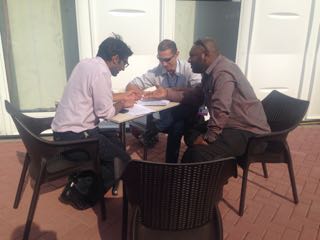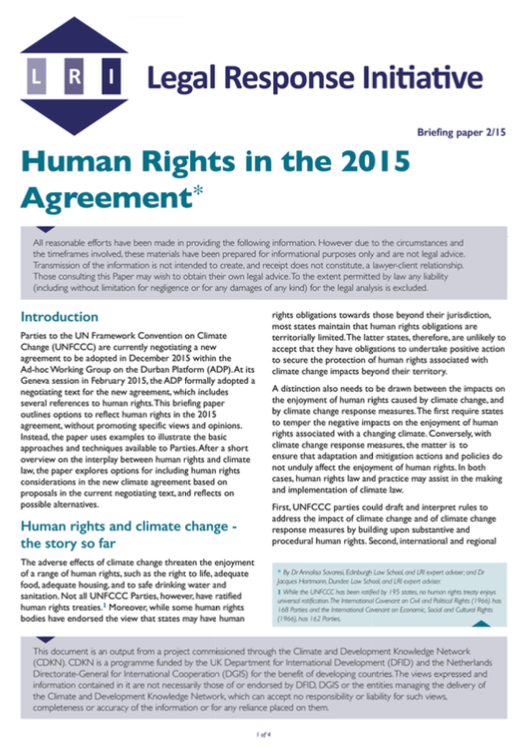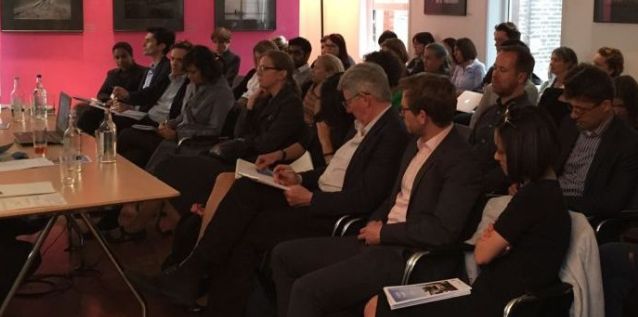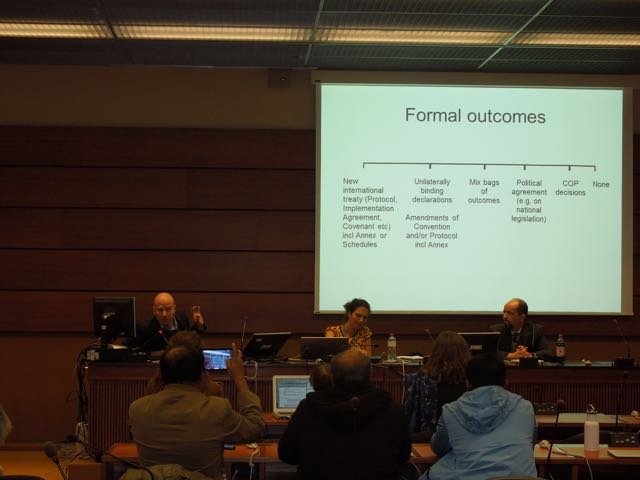22 December 2014
Six lawyers joined LRI as ‘liaison officers’ and assisted negotiators from developing countries during COP 20 in Lima, Peru, from the 1st to the 12th of December.
The LRI team of lawyers assisted with queries, dealing with drafting and text interpretation, referring the most complex questions to the Situation Room in London where legal experts associated to LRI were contacted to draft specialized legal opinions. During COP 20 LRI dealt with almost 40 legal queries touching upon a variety of key matters in the context of the negotiations. These included reference to adaptation in the new agreement and the future of the Adaptation Fund; the nature and scope of INDCs; questions around loss and damage and institutional arrangements, among other issues.
Talking about the support provided, Birama Diarra, negotiator from Mali, notes:
“During the negotiations in Lima COP20 many issues including legal aspects of existing funding mechanisms and the Climate Green Fund in light of the new 2015 agreement came out. The legal opinion provided by the LRI on the issue of adaptation for example, was detailed and good. This and other opinions provided to me during COP 20 helped me a lot for discussions and issues during this important meeting.”

In the picture, Raj Bavishi and Subhi Barakat, from LRI, with Ruel Yamuna, COP negotiator from Papa New Guinea
Among the LRI team in Lima was Brazilian lawyer Caroline Prolo, who felt “Immensely proud of being a part of the work the Legal Response Initiative does.” She further notes,
“The climate change regime is quite complex for one to grasp, let alone to follow the multi-track negotiations running at the same time. The textual language, the piles of COP decisions, the legal terms and its implications, are all crucial parts of the negotiation process. Those countries that do not have the capacity to deal with such issues are alienated from the process. And these are the countries most in need of an effective agreement. What the LRI does is to offer its high-level network of knowledge and legal expertise to enable these countries to participate actively in the process. We are talking about the free advice of some of the best lawyers, professors and academics in the world. It is an invaluable tool at hand for these countries in need. As a lawyer myself, I am immensely proud of being a part of the work the Legal Response Initiative does.” (Caroline Prolo – Silveiro Advogados, Brazil)
In addition to running its advisory service, COP 20 was an opportunity for LRI to engage further with a range of stakeholders involved in the climate talks.
On the Gender day at COP 20, LRI published a timely article containing draft provisions on how to integrate gender in the new agreement. The article was published by the specialized magazine Outreach.
Please contact us if you would like more information about LRI’s work and feel free to access all LRI’s legal opinions by signing up to our database. Access is free of charge.




